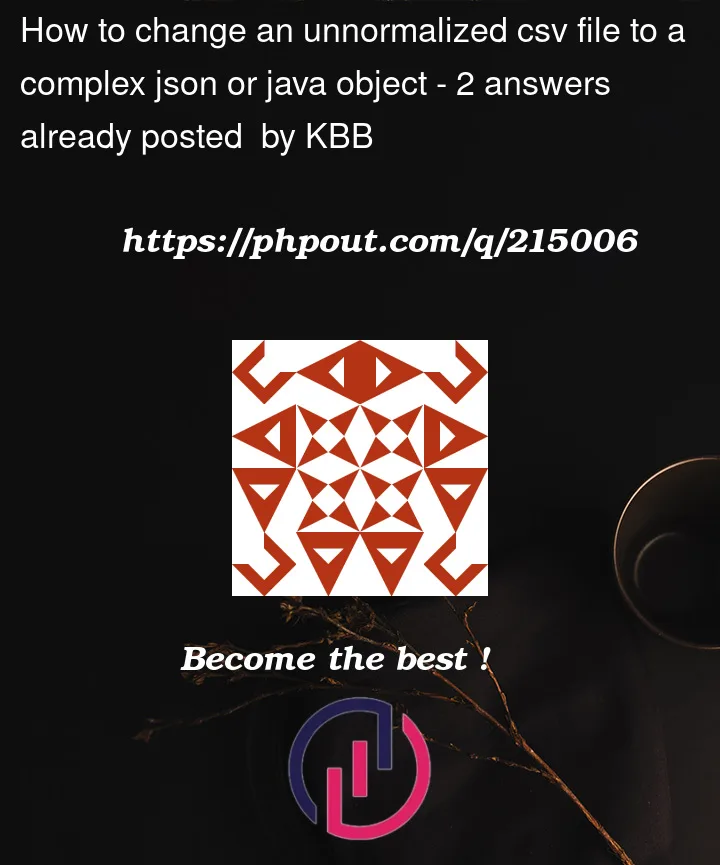I have the following unnormalized csv file
user_id,nickname,joinDate,product_id,price
1,kmh,2023-07-24,P131,3000
1,kmh,2023-07-24,P132,4000
1,kmh,2023-07-24,P133,7000
1,kmh,2023-07-24,P134,9000
2,john,2023-07-24,P135,2500
2,john,2023-07-24,P136,6000
3,alice,2023-07-25,P137,4500
3,alice,2023-07-25,P138,8000
I’m going to change this to the following json format (or java object).
[
{
"user_id": 1,
"nickname": "kmh",
"joinDate": "2023-07-24",
"orders": [
{
"product_id": "P131",
"price": 3000
},
{
"product_id": "P132",
"price": 4000
},
{
"product_id": "P133",
"price": 7000
},
{
"product_id": "P134",
"price": 9000
}
]
},
{
"user_id": 2,
"nickname": "john",
"joinDate": "2023-07-24",
"orders": [
{
"product_id": "P135",
"price": 2500
},
{
"product_id": "P136",
"price": 6000
}
]
},
{
"user_id": 3,
"nickname": "alice",
"joinDate": "2023-07-25",
"orders": [
{
"product_id": "P137",
"price": 4500
},
{
"product_id": "P138",
"price": 8000
}
]
}
]
I’ve been searching for quite a long time and haven’t found a library or tool that enables this .
I have so many different types of csv that I need tools or libraries to change all of these. Are there any libraries or tools that make this possible?




2
Answers
All you need is a way to parse the CSV to a Java object. You can do this manually, or by using an existing library.
For example, you can use Jackson with the CSV data format like this:
Which prints:
For your case, you can deserialize the csv into JsonNode directly without creating POJO class. And then use JSON library Josson to transform the JSON by function
group().Function
group()Functoin
map()Output